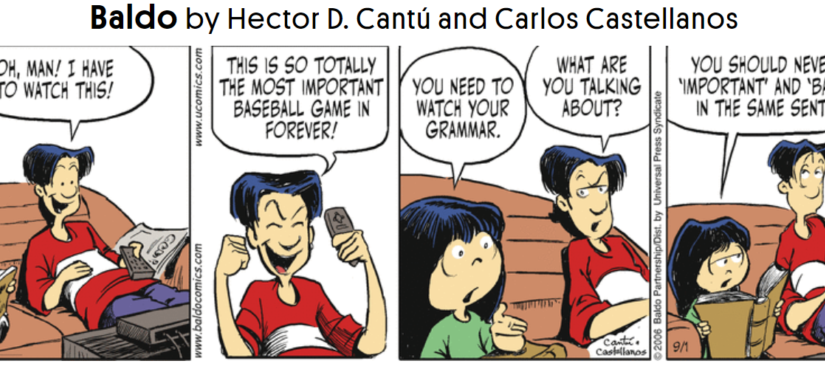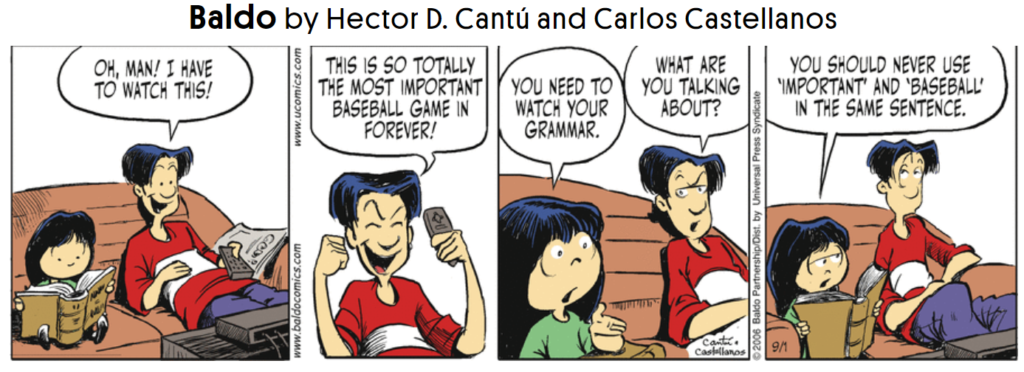Usually we make nouns into verbs (it’s called denominalization). A “run,” for example, becomes the verb “to run.” You can make just about any noun into a verb. Think about it.
You should find it harder to make verbs into nouns, but here’s a way:
Take a phrasal verb, such as “run over.” We have a noun made by putting the second part of the verb first. You get “overrun.”
You can also do it without switching the order, but you accent the first part of the word: To “set up,” and “setup.” Of course, this word can go either way; we have a “setup.”
Exercise for the reader (or should I say best beloved): Make yourself a list of five of each kind of noun. Hint: You’ll find it easier to make the second kind of noun.
If I find a comic that illustrates this, I’ll include it. If you find such a comic, send it to me!


